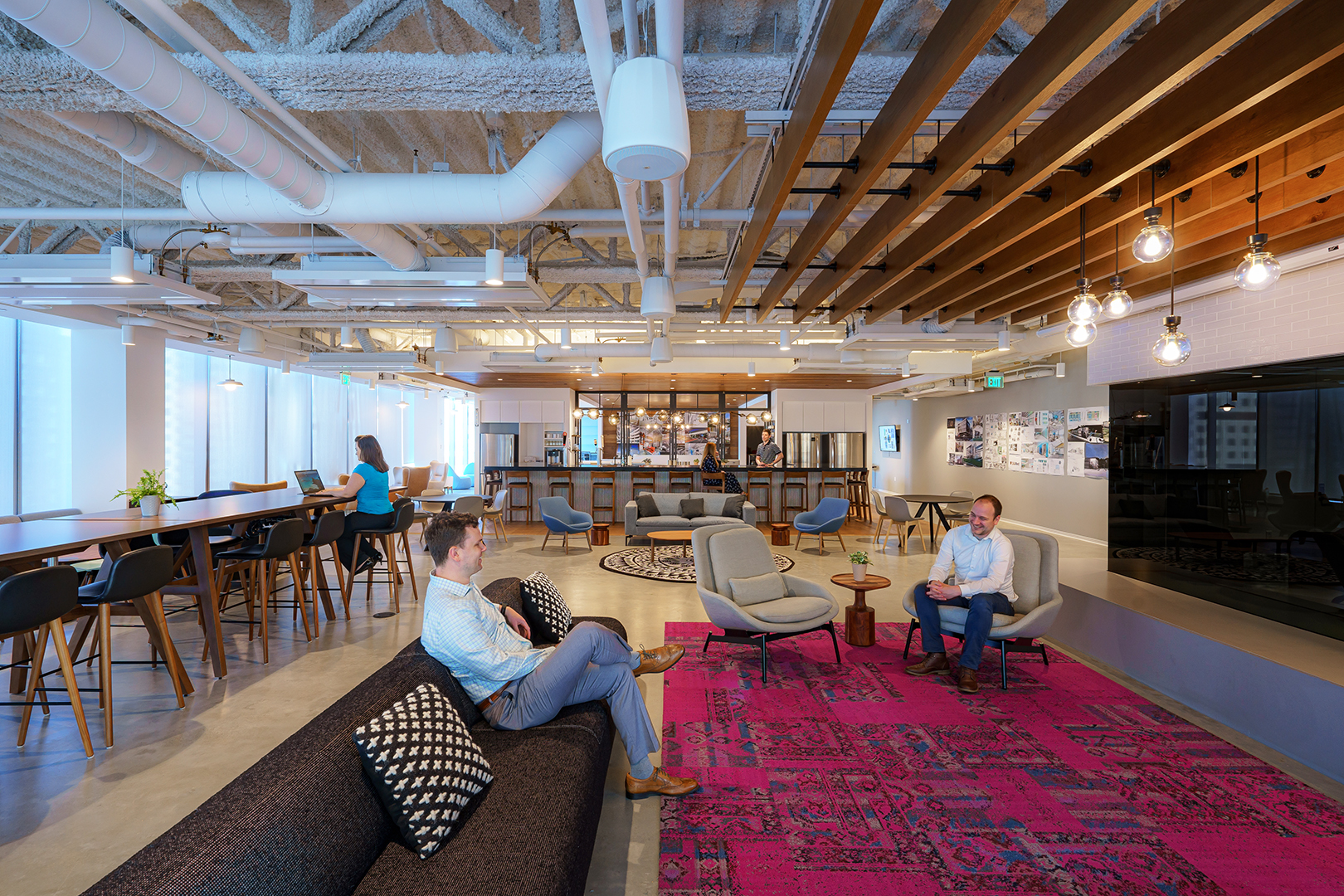SmithGroup Boston Office Moves to the Seaport District
The Boston office of SmithGroup, one of the nation's leading integrated design firms, has relocated to the LEED Platinum 101 Seaport Building in the city's burgeoning Seaport District. The new 11,500 sf office space overlooks the vibrant redeveloping neighborhood framed by panoramic views of the Boston Harbor.
While the pandemic forced many organizations to rethink their real estate strategies, SmithGroup found opportunity in the uncertainty. The new office space is a short-term lease, lending flexibility for experimenting with varied modes of working as the United States begins to transition to life after COVID-19.
SmithGroup's Workplace strategists and designers continue to study the future of work as employees being to return to their offices. In a study of its own staff, SmithGroup learned that most employees who want to return to the office desire the collaborative culture and social engagement of in-person work. Nearly half the square footage of the new Boston office is therefore dedicated to social functions encouraging the interaction, camaraderie and collaboration employees are craving.
"We believe that attitudes about in-office work will continue to shift over the coming years," says John Moorhead, design leader at the Boston office. "Our search for new workspace focused on finding a space that would allow us to enhance our culture through building community amongst our staff and with our partners in the industry, while also being flexible to changing work modes."
The remaining half of the suite is a blend of collaborative work and focus work zones, neither of which have assigned seating. The firm is leading by example updating its corporate culture to adopt more hybrid work and offer employees more choice in where, how and when they work. SmithGroup's own research of its workforce revealed that staff also desire to retain some of the benefits of remote work and its inherent flexibility after the pandemic. For this reason, the work zones in the new office intentionally have fewer seats than the current staff count in Boston.
To enable flexible connectivity needed for hybrid work and to be agile as preferences about work change in the next years, the Boston workspace embeds more technology than would have been standard before the pandemic. Meeting rooms and huddle spaces ensure that remote and in-room participants can connect and participate seamlessly.
"The coincidental timing of our search for workspace during the pandemic created an opportunity for us to reimagine the role of the office in supporting how we work," explains Mark Jussaume, director of the Boston office. "Our new office is an important component of a larger ecosystem where we will actively engage clients, strategic partners, and our staff."
For more information about SmithGroup, please visit our Company Fact Sheet.
